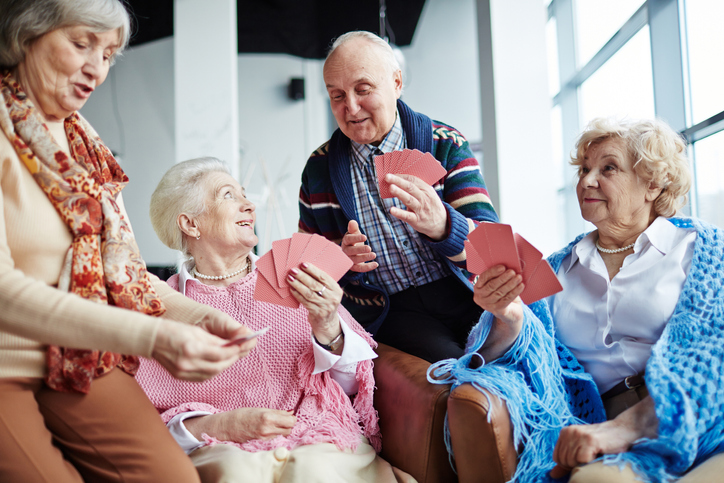The health risks of loneliness and social isolation are growing concerns for seniors. Many studies have shown a correlation. These could range from affecting your quality of life to leading towards an earlier death. The latest National Poll on Healthy Aging found that a shocking one third of seniors are lonely. In fact, some research has shown that chronic loneliness can shorten life expectancy more than being overweight and sedentary can. And just as much as smoking would. However, there are ways to combat and reverse the effects of chronic loneliness.
Sadly, a large majority of seniors in a recent survey from AARP stated they felt lonely. Furthermore, 30 percent said they socialized less than once a week. The health risks of loneliness were clearly seen in this survey too. Far more seniors who reported chronic loneliness also reported health concerns. By contrast, those who reported more socialization complained of less health issues.
In this Time article, geriatrician Dr. Carla Perissinotto weighs in on this topic. Dr. Perissinotto claims you can reverse the effects of chronic loneliness. However, identifying the underlying cause of the lonely feelings and isolation is the first step. It’s not always as simple as getting seniors together with friends. Even moving them in with family is not always the quick solution we hope for.
Is it due to the death of a spouse? Or maybe illnesses make it difficult to get out. Regardless, Dr. Perissinotto says it’s vital to understand the root cause of the loneliness. Loneliness refers to the discrepancy between actual and desired relationships. It also revolves around the quality of the interactions.
Finding a solution to you or your loved one’s loneliness is highly personal. It will depend on a variety of factors and be different for each individual. However, a suggested general intervention is to create meaningful social contacts. Maybe it’s volunteering. Or you might enjoy playing cards with an old friend or a grandchild. Find a variety of activities you can do at least weekly.
Of course, no one can guarantee you’ll live longer by socializing. But you will almost certainly feel the benefits of being happier and more connected to others and your community.


